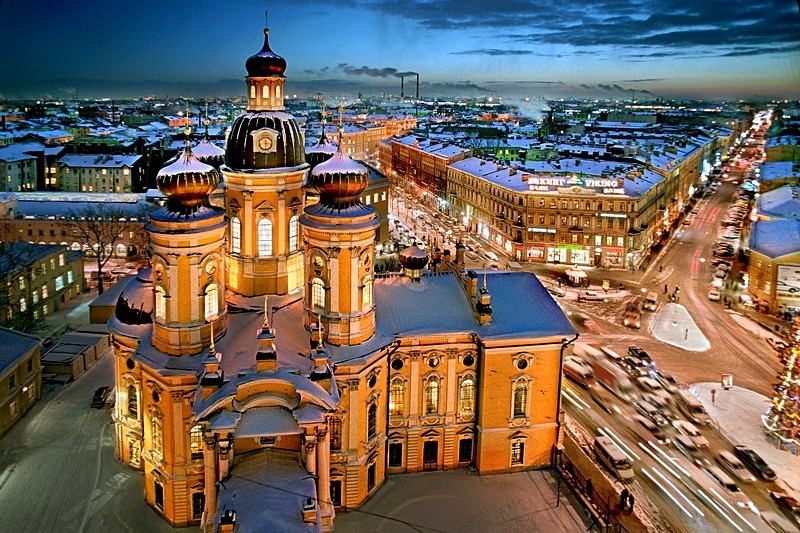- Home
- About Us
- Tel : +91 33 4022 9591
Saint PetersburgView all the popular packagesOffers
2 Popular Packege(s)
Area 356.4 Square Kilometers
Population 4.99 Million
Winter Temperature -6°C
Summer Temperature 18°C
Best Time To Visit The best time to visit St. Petersburg is from mid-June to September.
Air
Aeroflot Airlines are well connected via Moscow.
The State Hermitage Museum

The State Hermitage is one of the largest of art and historical museums in the world. The State Hermitage is the combination of seven buildings: the Winter Palace, the Small Hermitage, the Great (Old) Hermitage, the New Hermitage, the Hermitage Theatre, the Menshikov Palace and the General Staff Building. Three million works of art and monuments of world culture are the collection of the State Hermitage Museum which include paintings, sculptures and works of applied art, archaeological finds and numismatic material. The palace buildings and interiors created by architects Bartolomeo Rastrelli, Giacomo Quarenghi and others in the style of early Russian classicism are a remarkable example of the architectural heritage of their era.
Nevsky Prospekt
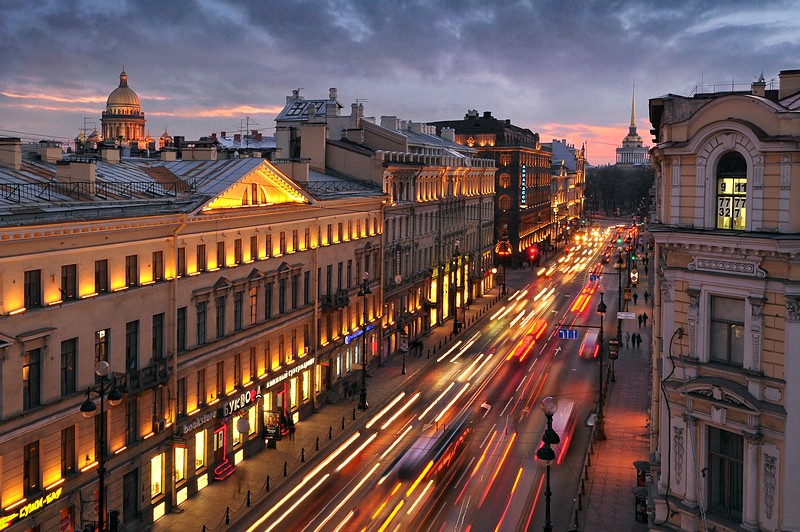
Nevsky Prospekt is the main and most famous street of St. Petersburg. The unique architectural has been formed during the 18 â early 20th centuries. The street joins the Admiralty and the Alexander Nevsky Square, it starts from the bank of the Neva River, runs through the center of the city and ends at the Neva River. The whole history of St. Petersburg can be seen in the history of the Prospekt. Length of Nevsky Prospect â 4.5 km, width â 25 â 60 m.
Admiralty
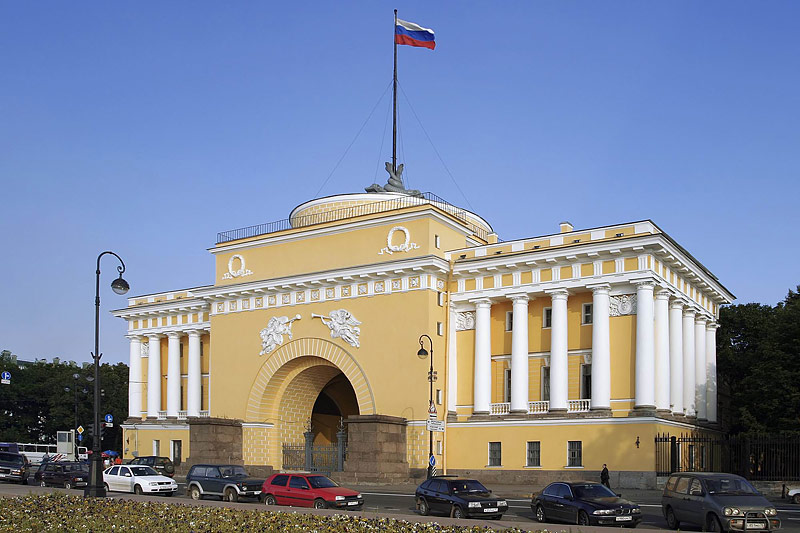
The Main Admiralty building is an outstanding example of Russian and world architecture, a major achievement of the early classical art. The Admiralty is the architectural and compositional center of St. Petersburg. Three main thoroughfares of the city converge here â Nevsky Prospekt, Voznesensky (Resurrection) Prospekt and Gorokhovaya Street. The building was assuming its present aspect during a whole century. The first Admiralty was founded in 1704 as a shipbuilding yard, to a design of Peter I himself. One-story clay-walled structures were arranged in the form of the Russian (letter N ("H"), in the south the territory was fortified by an earthen rampart and bastions. The yard was surrounded by an inner moat. The building housed warehouses, workshops, as well as different admiralty departments; the yard held covered slips for constructing sailing vessels.
St. Isaac's Cathedral
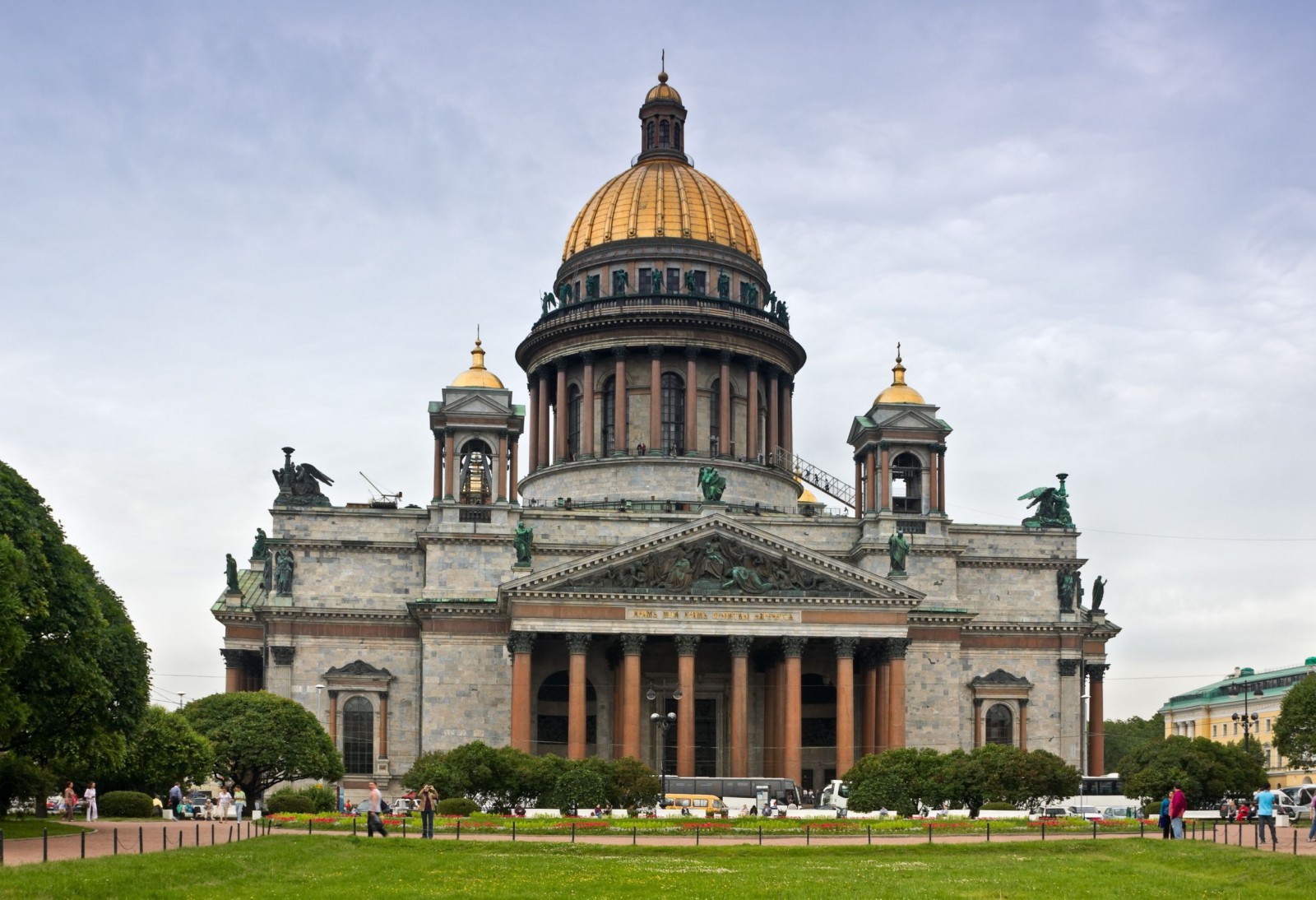
St. Isaac's Cathedral is the largest Orthodox church in St. Petersburg. St. Isaac's Cathedral in St. Petersburg is an outstanding monument of late classicism. The cathedral was built in 1818-1858 by the architect Auguste Montferrand, Emperor Nicholas I supervised the construction. The cathedral was one of the world's largest domed buildings (the diameter of the dome is 21.8 m). Height of St. Isaac's Cathedral is 101.5 m. An area of 4000 sq m of the cathedral can accommodate up to 12,000 people. St. Isaac's Cathedral, as well as almost all Orthodox churches, is five-domed. On the porticoes of the drum of the dome are installed 72 solid granite columns weighing from 64 to 114 tons. For the first time in the construction practice the columns of this size were raised to a height of 40 meters. It took about 100 pounds of pure gold for gilding of all the domes of the cathedral. Belfries of St. Isaac's Cathedral are located at the corners of the main building.
Tsarskoe selo, Pushkin
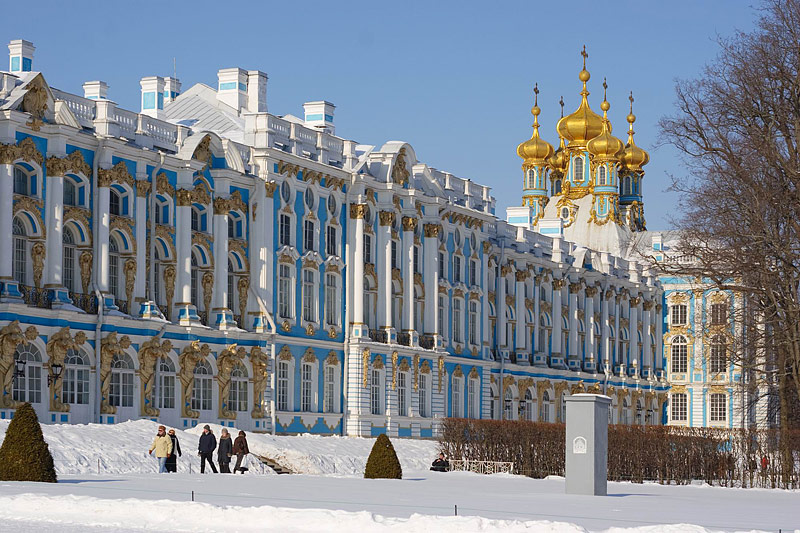
Silence, picturesque parks, historical sights - all these things make the town of Pushkin not only the great historical and cultural treasure, but also "The Town Of Muses". Beeing a countryside Tsar residence , it is the wonderful monument of Russian architecture and garden - parking art of XVIII century. But together with it the town is obliged by its fame to some generations of poets, writers, the genius representatives of the Russian culture, who lived, worked or just were inspired by its beauty.
The Church of the Savior on Spilled Blood
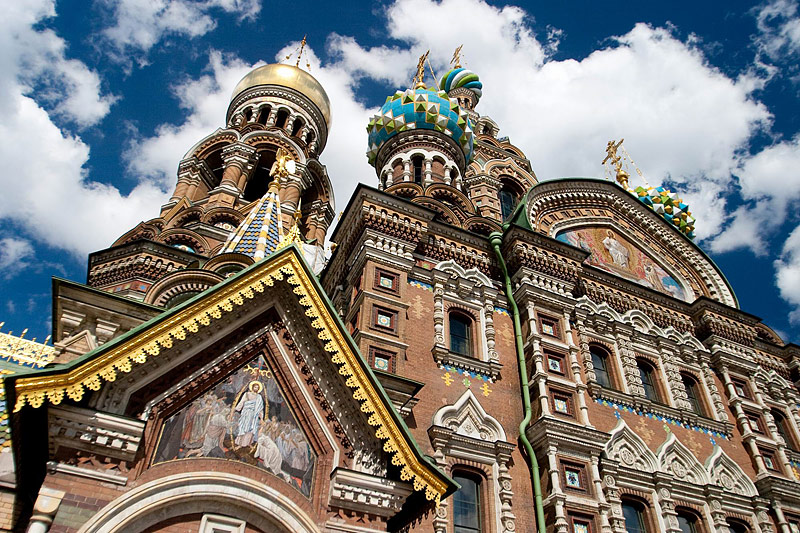
The Church of the Savior on Spilled Blood in St. Petersburg is an Orthodox Memorial Church of the Resurrection of Christ, constructed in memory of Emperor Alexander II who was was mortally wounded in an attack in this place March 1, 1881. The cathedral was built as a monument to Tsar-Martyr. Height of the nine-domed cathedral is 81 meters, capacity - 1600 people. The Church of the Savior on Spilled Blood in St. Petersburg is a museum and a monument of Russian architecture. The first thing you notice when entering the Church of the Savior on Spilled Blood in St. Petersburg is a wonderful mosaic carpet of its icons and ornaments covering the entire inner space, from the base to the main dome. It is the only Orthodox Cathedral, mosaic decoration of which is 7065 square meters, one of the largest mosaic collections in Europe.
The Smolny Cathedral
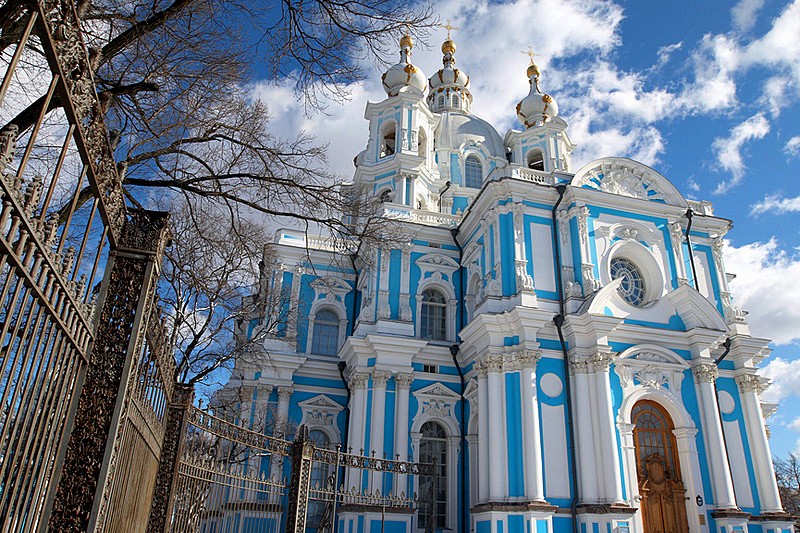
The Smolny Cathedral is a part of the architectural ensemble of the Smolny Convent, located in St. Petersburg, on the left bank of the Neva River. The Smolny Cathedral and Smolny Convent are built in the Baroque style under decree of Empress Elizabeth, who had intended to retire to a monastery in her old age. The ensemble was built by the architect Francesco Bartolomeo Rastrelli, it was the last work of the great architect.
Peterhof Park and Palaces
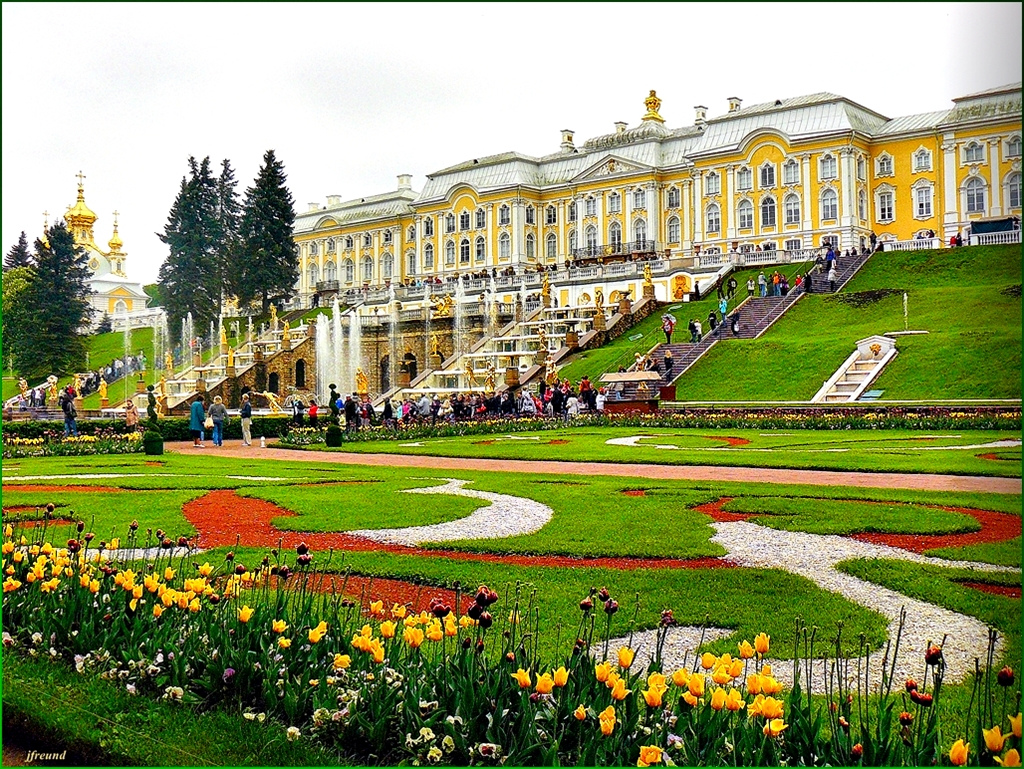
Peterhof is the monument of world architecture and the palace and park art. Peterhof includes the Palace and Park Ensemble of XVIII-XIX centuries â the former royal countryside residence. Peterhof is the City of Fountains â it contains 173 fountains and 4 cascades â located 29 km from the city on the southern coast of the Gulf of Finland. Each year, up to 3 million people come here to enjoy the splendor of numerous fountains, unique parks and pavilions of Peterhof.
St. Nicholas Naval Cathedral

The St. Nicholas Naval Cathedral is a large Orthodox church and a magnificent monument of the late Russian Baroque, located at the St. Nicholas Square in St. Petersburg. The St. Nicholas Cathedral was built as a marine regimental church in the period from 1753 to 1762 by architect S. Chevakinsky on marine regimental court in place of the wooden church. The cathedral can accommodate about five thousand people at once. A detached four-storey, crowned with a high spire, bell tower was built in 1755-1758.
Peter and Paul Fortress
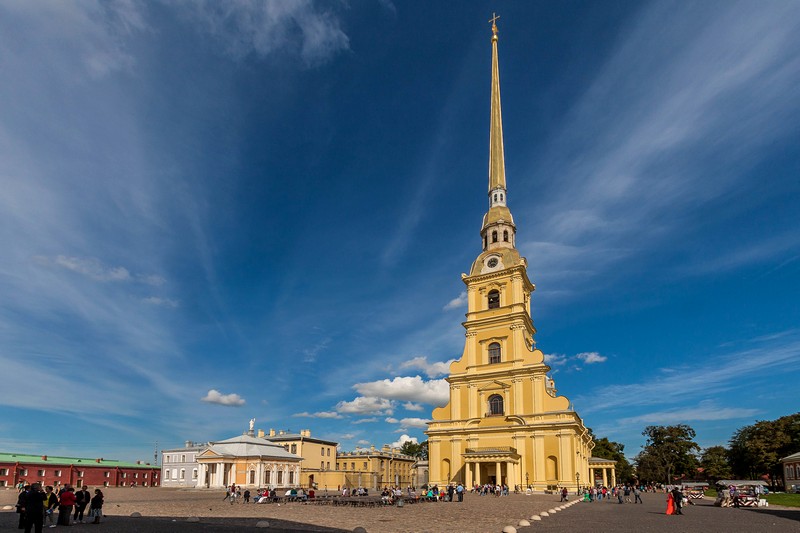
The Peter and Paul Fortress in St. Petersburg, located on small Hare Island, is the historic core of the city. The history of St. Petersburg begins with the history of the fortress. Since 1700 Russia had been fighting the Northern War against Sweden. By 1703 the lands by the Neva River were conquered. To protect them from the attacks of the Swedes it was necessary to find a lodgement here.
The main shopping streets in St. Petersburg
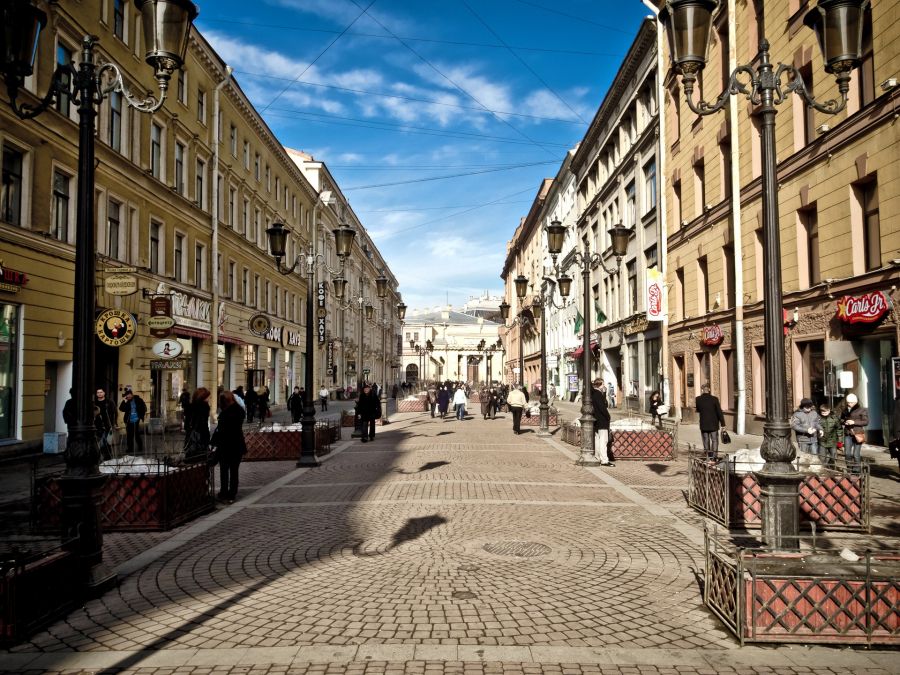
The main shopping streets of the city are Nevsky prospekt, Sadovaya street, Vladimirskiy prospect (footwear), Bolshoi prospect of Petrogradskiy district, Sredniy prospect and 7th line of Vasilievskiy island near the Vasilyeostrovskaya metro station.
Combine a walk along the Nevsky prospect with shopping and you will get an unforgettable and pleasant time.
Remember: in the elite clothing boutiques on Nevsky prospect, you will pay slightly more for the purchase than in the shopping malls, but sometimes itâs worth it!
Tandoor
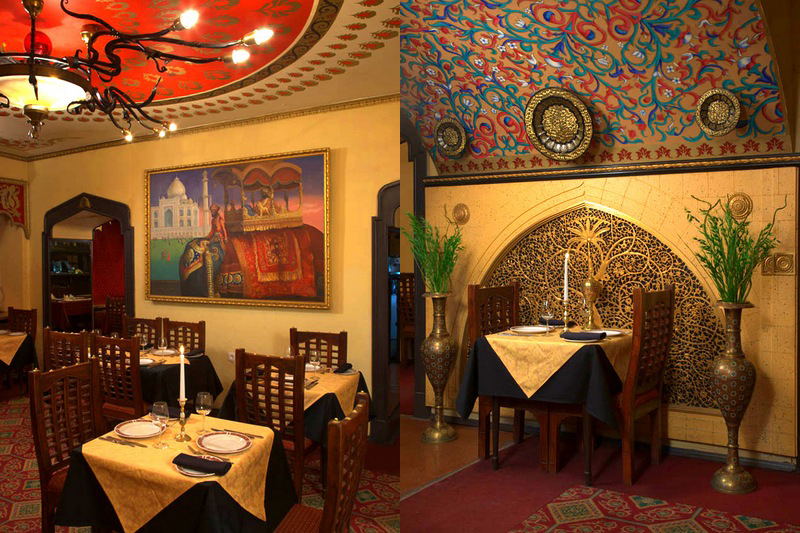
Address: Admiralteyskiy pr., 10, Sankt-Peterburg, Ленинградская область, Russia, 190000
Phone: +7 812 312-38-86
Oh! Mumbai
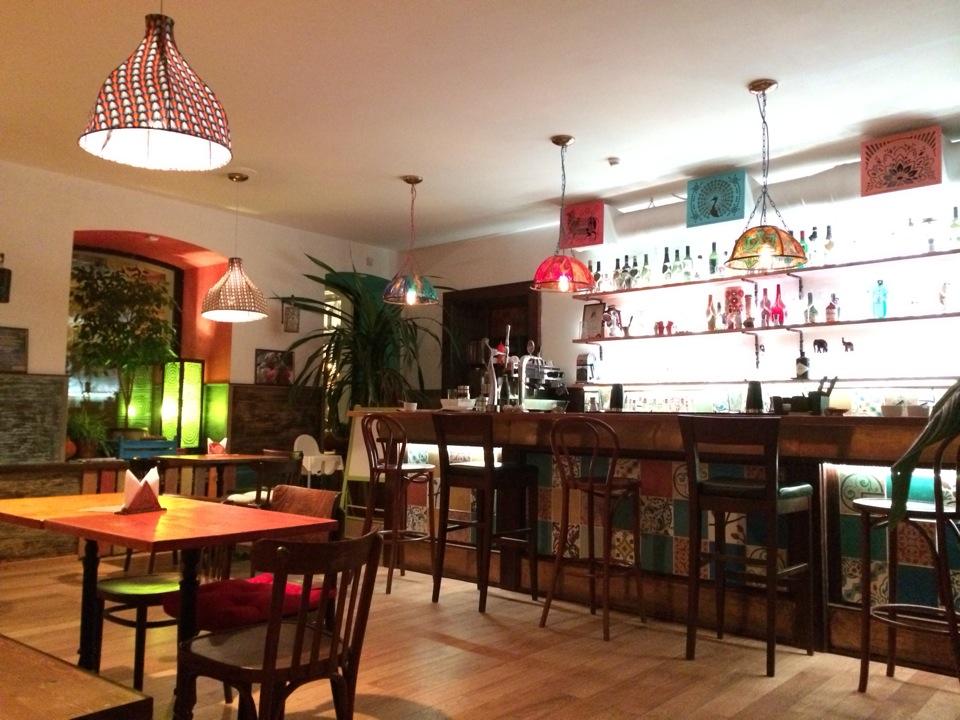
Address: per. Grivtsova, 2, Sankt-Peterburg, Russia, 190000
Phone: +7 812 314-03-40
Namaste
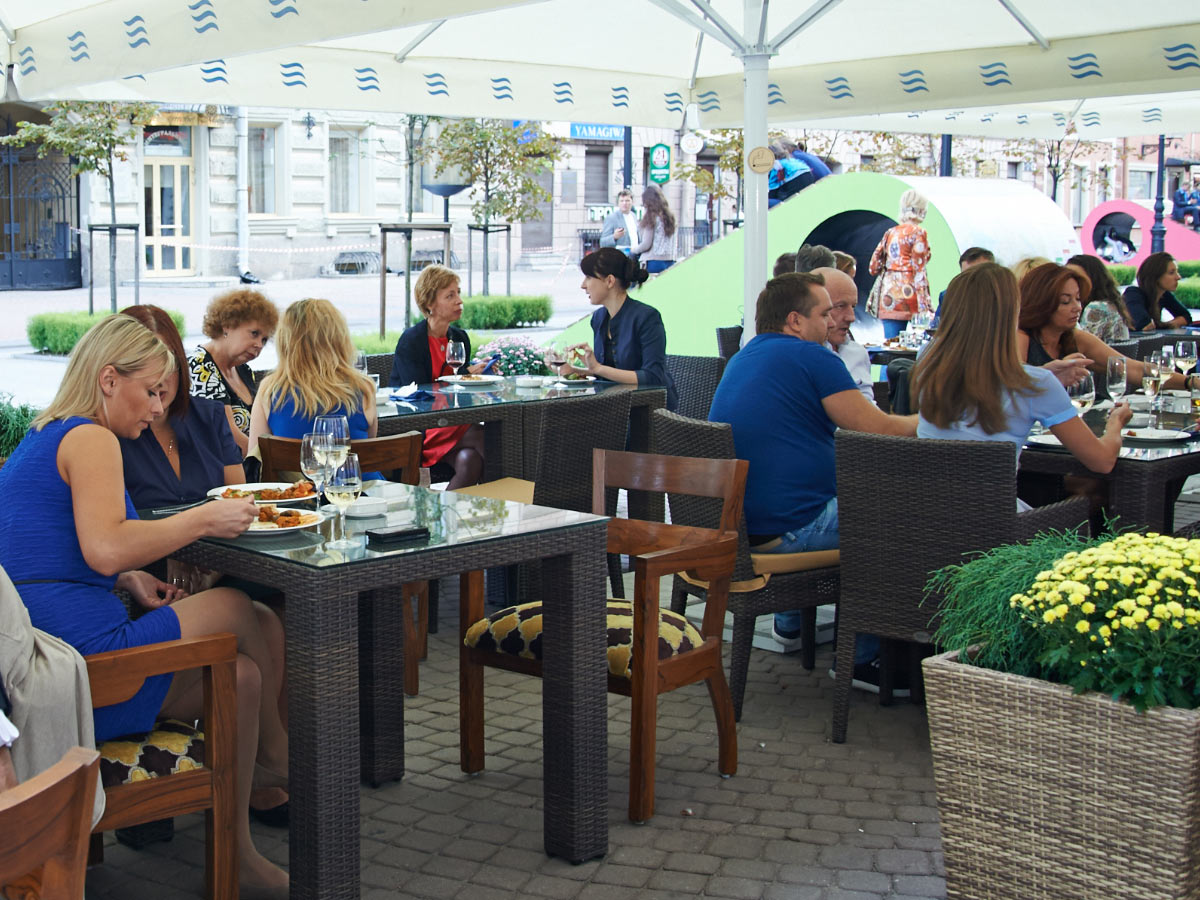
Address: Malaya Konyushennaya ul., 5, Sankt-Peterburg, Ленинградская область, Russia, 191186
Phone: +7 812 570-68-86
Tandoori Nights
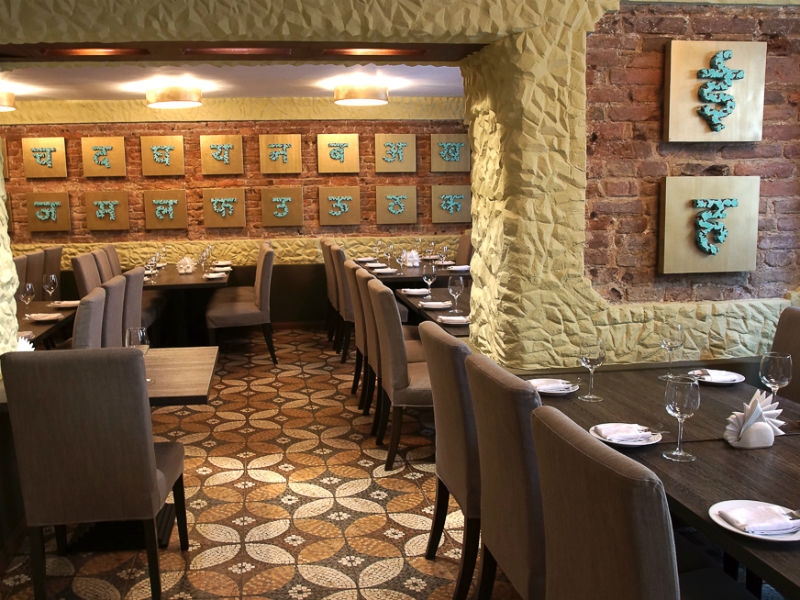
Address: Voznesensky Ave, 4, Sankt-Peterburg, Ленинградская область, Russia, 190000
Phone: +7 812 312-87-72
Frida

Address: ul. Chaykovskogo, 57, Sankt-Peterburg, Ленинградская область, Russia, 191123
Phone: +7 965 797-57-90
Vegeterian Samadeva Cafe
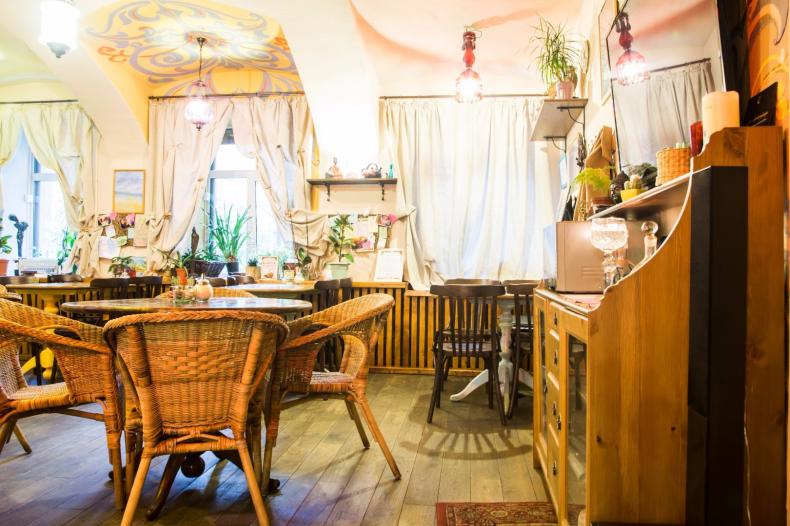
Address: Kazanskaya ul., 10, Sankt-Peterburg, г. Санкт-Петербург, Russia, 191186
Phone: +7 812 904-70-77
Good Taste
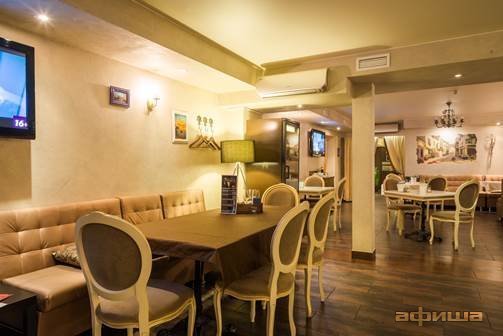
Address: Bolshaya Pushkarskaya ul., 15, Sankt-Peterburg, Ленинградская область, Russia, 197198
Phone: +7 921 912-22-13
Kashmir
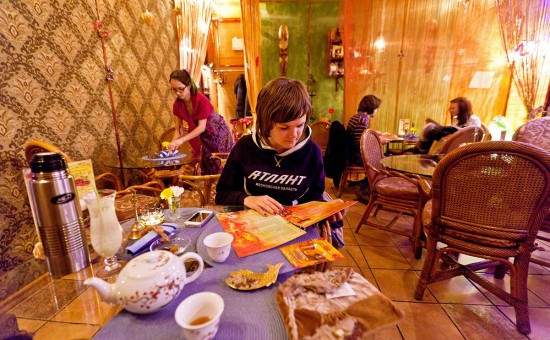
Address: Bolshaya Moskovskaya ul., 7, Sankt-Peterburg, Russia, 191002
Phone: +7 812 575-63-69

